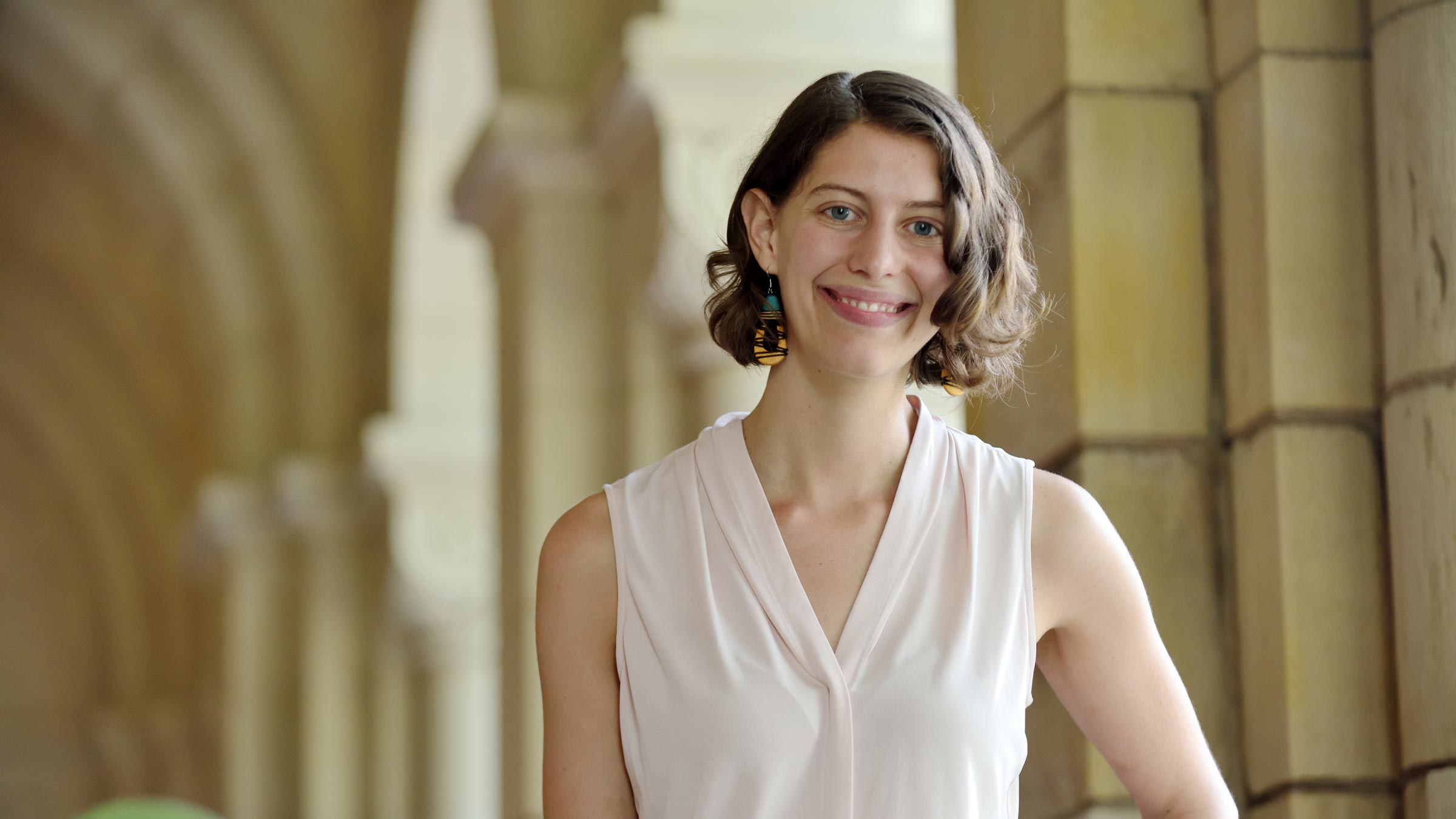Jewish Ethical Writing and Practices Help Students Define Their Values
Jewish Ethical Writing and Practices Help Students Define Their Values
When Elizabeth Aeschlimann, Vassar’s Rachlin Director for Jewish Student Life, was involved in community organizing, she sometimes experienced a disconnection between her social activism and her Jewish spirituality. Then she read a book by a Boston rabbi, David Jaffe, titled, “Changing the World From the Inside Out.” In the book, Aeschlimann says, Jaffe integrates social change with “a genre of Jewish ethical writing and practice that uses group reflection, texts and spiritual practice to cultivate awareness to help us align our actions with our values.”
Aeschlimann was so impressed with the wisdom imparted in the book that she decided to teach a class about it. During the first half of the spring semester, she and her 11 students explored the ideas and concepts embodied in Rabbi Jaffe’s book. Each week of the course was devoted to a value or practice from Jewish writers and thinkers. Those concepts included ratzon, the force that operates below our consciousness that motivates us to take action; Yetzer HaRah, the drive for instant gratification that can be used for both good and ill; and mussar, a framework for living with integrity. The students were given exercises each week to help them test these concepts in their own lives.

Ariana Bowe ’20, a media studies major from New York City, says she learned about the course from fellow members of Wholistic, a Vassar org that focuses on mindfulness and spirituality. “I’m from a Jewish family, but I don’t practice Judaism,” Bowe says. “But I wanted to learn more about the connection between mindfulness and traditional Jewish practices.”
Assignments for the class included keeping a daily journal and trying out some of the practices Jaffe describes in the book, including being more assertive or less assertive in daily interactions with students and faculty. “The Jewish teachings were the basis of these exercises, but they also served as a starting point for our own reactions, how these practices affected us personally,” she says.
Bowe says the class could have been intimidating, but it wasn’t. “It was definitely an intimate series of exercises, but Liz had a way of making it OK for us to open up and feel safe,” she says.
Micah Katz-Zeiger ’18, a Hispanic Studies major from Brookline, MA, was familiar with Rabbi Jaffe’s work before he enrolled in the class. “My mother is involved in social action work in the Boston area, and she took a class with our rabbi that uses Rabbi Jaffe’s book,” Katz-Zeiger says.
He says taking Aeschlimann’s course had helped him think more deeply about his own values and how they relate to his post-Vassar plans at a critical time in his life. “I’m applying for jobs involving social justice work, and engaging in these practices in the class enabled me to think more clearly about what motivates me to do this work,” he says. “The class really helped me to understand my grounding in Jewish values.”
Aeschlimann says she genuinely enjoyed teaching the course and planned to offer it again next year. “I was excited to bring this Jewish lens and practice to a campus that is so invested in social change in a moment when interest in ‘healing justice’ is growing and people recognize the internal and external transformation are inextricable.”